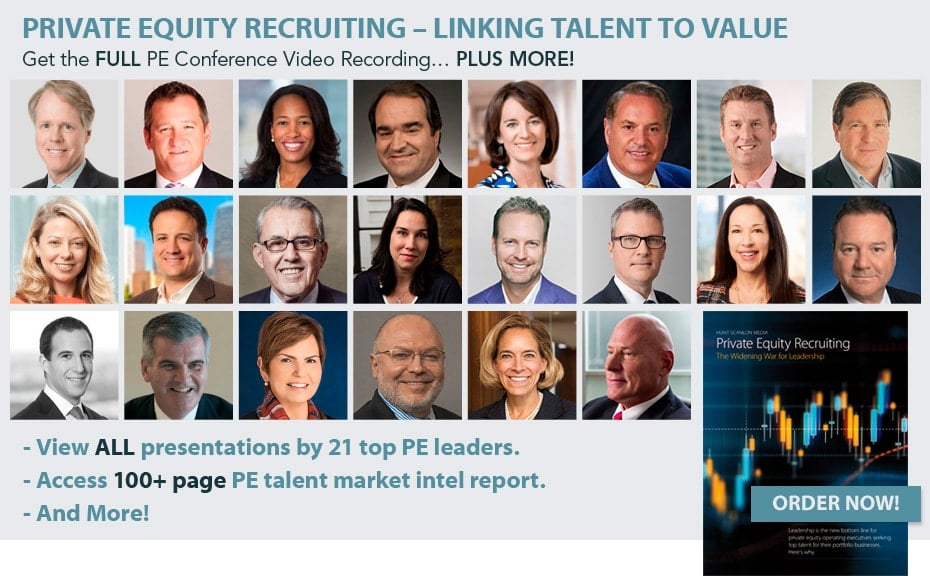Why Big Brand Job Candidates Aren’t Always the Best Fit

March 22, 2019 – Professionals who have a big personal cache in an industry, or who have been working at a big branded company, do not always make the best candidates. Instead, professionals who have had relevant accomplishments, even at brands that are lesser known, can oftentimes be the better fit.
“Early in a search, organizations will often target specific high-profile, brand name companies, but lineage is equally and in most cases, more important,” said Michael Morell, co-founder and managing partner of San Francisco-headquartered Riviera Partners. “Great people come from great lineage. Experience is always critical. But look at their mentors. Who did they learn from? What did they learn, and what are they able pass on to others?”
“A candidate’s lineage indicates likelihood of success across a multitude of factors critical to your business,” he said. “Our most successful placements all come from exceptional lineage.”
20-Year Search Veteran
Riviera Partners is a global recruiting firm specializing in the technology industry. The firm provides clients with optimal placements by combining recruiter interactions and experience with data-driven findings about candidates. The firm has recruited key executives for Pinterest, Postmates, Tinder, Twilio and partnered with venture-backed concerns, including Andreessen Horowitz, Sequoia, Benchmark, Accel, Menlo Ventures, KPCB, Greylock and General Catalyst.
“Tech executives are successful in business because of work hard with grit, rigor, and skill,” said Mr. Morell, who has 20 years of experience in executive search and technology. “But more importantly, many tech leaders learned from great mentors, who passed their mindsets and learnings on to the next generation.”
Related: Companies Hiring on Basis of Skills Rather Than Open Positions
Mr. Morell recently sat down with Hunt Scanlon Media to look at why some overlooked candidates should stand out to executive search consultants based on other qualifications besides what company they have worked for in the past. Following are excerpts from that discussion.
————————————-
 What types of skills are important? What about training?
What types of skills are important? What about training?
Executives that have come up through a lineage of greats will have developed skills and experiences through mentors that can prove crucial at various stages of company growth. They come to the table with an engrained set of best practices and relevant experiences. The key is to seek executive candidates who were in the trenches with other leaders at companies that already made it through whichever phase of growth the company ascended. Different skills are required for different growth stages of companies, of course. If you need a leader who is going to build a start-up, you need someone who was mentored in a fast, small, scrappy environment that likely had little support and budget limitations, with limited scale around operations. That leader will be able to hit the ground running building very technical, versatile teams and will be comfortable operating with limited resources.
“Executives that have come up through a lineage of greats will have developed skills and experiences through mentors that can prove crucial at various stages of company growth. They come to the table with an engrained set of best practices and relevant experiences.”
When might cross-functional skills come into play?
Maybe you’re a company that is about to take off in the market. You’re in a rapid growth phase, so you need to possess skills in operations. Hiring, development, performance reviews, firing, etc. You’re in the position to hit the accelerator for growth. Scaling is bringing order to chaos. Your company has found its market, and now you need leaders who can layer in processes as you build toward critical mass. At that point you also need to think about working cross-functionally. In early phases of scale, you may have had 20 employees, 15 of whom were engineers. Cross-functional communication skills are important at that phase.
How can companies identify their stage?
Further up the growth trajectory, you may be working with more legacy partners and technologies, or expanding from one product to have a large portfolio. The executives you bring in will need to be able to manage customer needs as they change. They must have political savvy and the ability to communicate and influence decisions up and down and organization, and across external and internal audiences. Companies should be able to identify their stage, think about what they want to optimize for, and then look at where candidates may have learned those skills. This assessment can give you a high level of confidence that they’ll be successful.
 Why Amazon Remains Prime Hunting Ground for Headhunters
Why Amazon Remains Prime Hunting Ground for Headhunters
Nothing plays on the mind – and organizational chart – of every CEO more than talent raiding. Here’s why modern day poaching can create a logistical nightmare for some companies . . . and how they can stem talent loss.
What type of rigor is needed in this process?
Rigor helps uncover potentially damaging issues before they occur and helps balance tradeoffs. Applying rigor is especially pertinent as companies grow and scale. Most senior-level officers and boards want to see that executives are putting in the work, and are consistent in how they run processes to be able to anticipate potential issues. Think about Ray Dalio, who runs the largest hedge fund in the world, Bridgewater Associates. One of the principles he espouses is that people can get to the best answer through a triangulation process. In other words, gathering and validating information from two or more sources. In the case of business rigor, executives may demonstrate rigor and triangulation by eliciting input from marketing, engineering, finance – multiple departments that each provide different perspectives to help make a particular decision.
What does triangulation ensure?
Triangulation ensures that you get other competent folks to challenge you in the decision-making style such that you are not making decisions in a sample size of one. This is just one example of applying rigor to a decision-making process, but it’s one that executives can observe and internalize from their work with other great leaders or great companies along their earlier career path. Great mentors may not have given candidates all the answers, but those prior managers and colleagues could certainly have provided a very strong framework within which they can operate more confidently, with better chances at success.
Related: Human Strengths Touted as the Solution to Challenges of the Skills Revolution
What else besides rigor is important?
Grit and determination – and they go hand in hand. Grit can come from within people through their own life experiences. But through resolve and strength of character grit can also be seeded for mentees. It’s having the courage to move forward and have confidence that you’ll be able to navigate situations, when business is going well and when business is struggling. Think about how company leadership acts in times when business dips. They can choose to keep quiet about the weakness and not share details with employees. Or, they may choose to be fully transparent to explain to employees what’s happening under the covers, to explain why cash flow may seem tight, for instance. Information abhors a vacuum. That decision to be open and transparent can make a world of difference between retaining employees, and seeing them run scared. Executive candidates who were born and bred in that type of transparent environment have seen how to weather those types of storms calmly.
How much does past success and failure play into this?
On the flipside, they should also have seen how leadership dealt with great successes. Success is always a combination of luck, timing and skill – and future leaders should demonstrate that they understand that, and they can stay steady in highs and lows. Companies need to determine whether a person who led the team for a product that met great success will have the learned abilities to manage growth once that product takes off and also be confident in his or her abilities to recover and redirect if the product doesn’t get traction. Prior company roles, successes, failures and leaders or mentors can all be useful indicators of a candidate’s grit and determination. If they’ve had great managers in the lineage before them show their fortitude to move forward given any situation, that ability will likely carry over.
Related: Assessing Soft Skills to Land Your Next Top Hire
Contributed by Scott A. Scanlon, Editor-in-Chief; Dale M. Zupsansky, Managing Editor; Stephen Sawicki, Managing Editor; and Andrew W. Mitchell, Managing Editor – Hunt Scanlon Media













